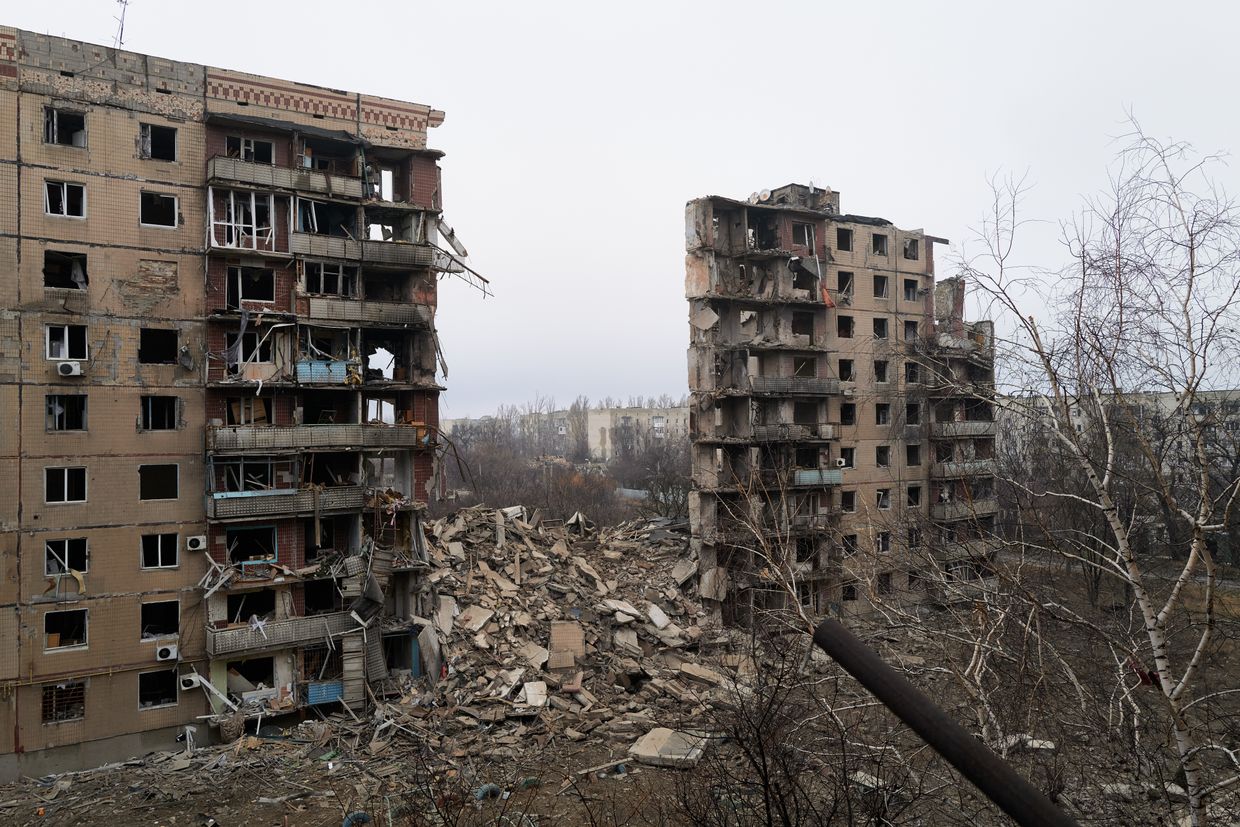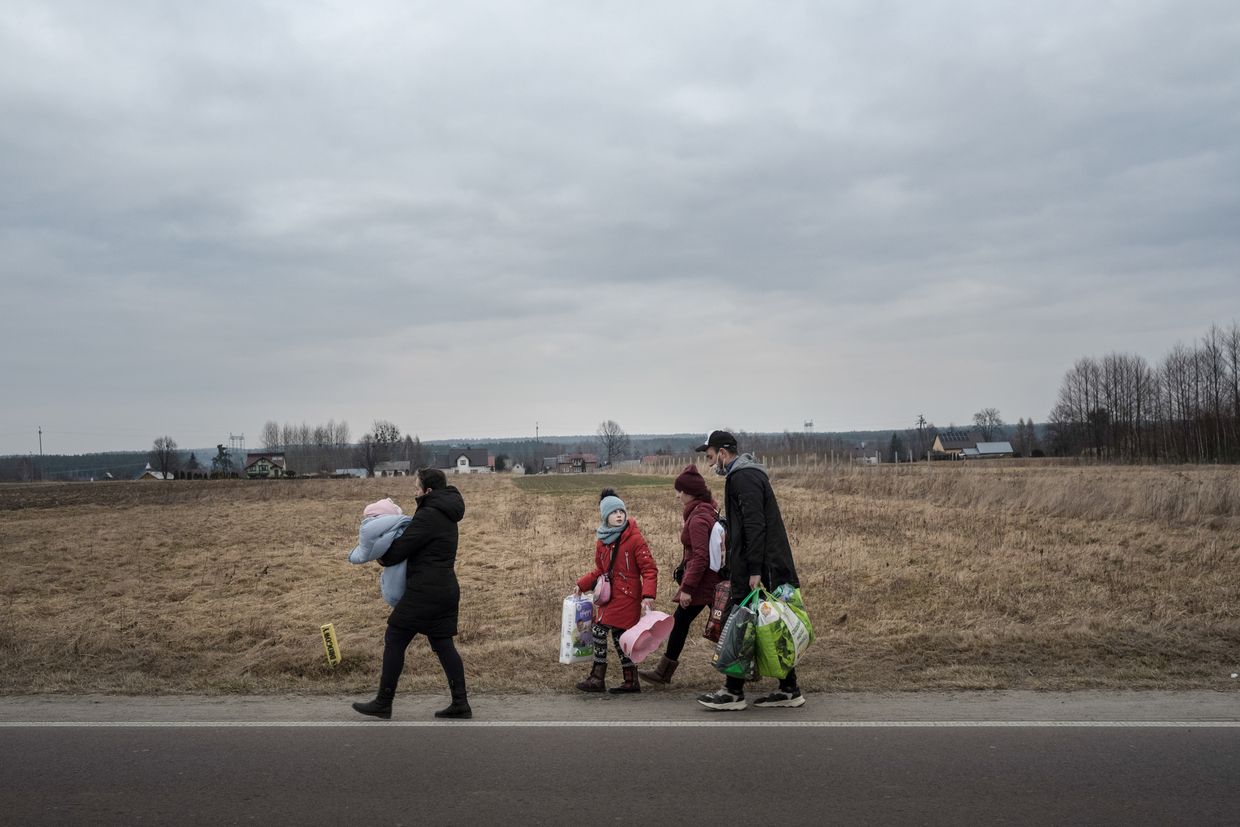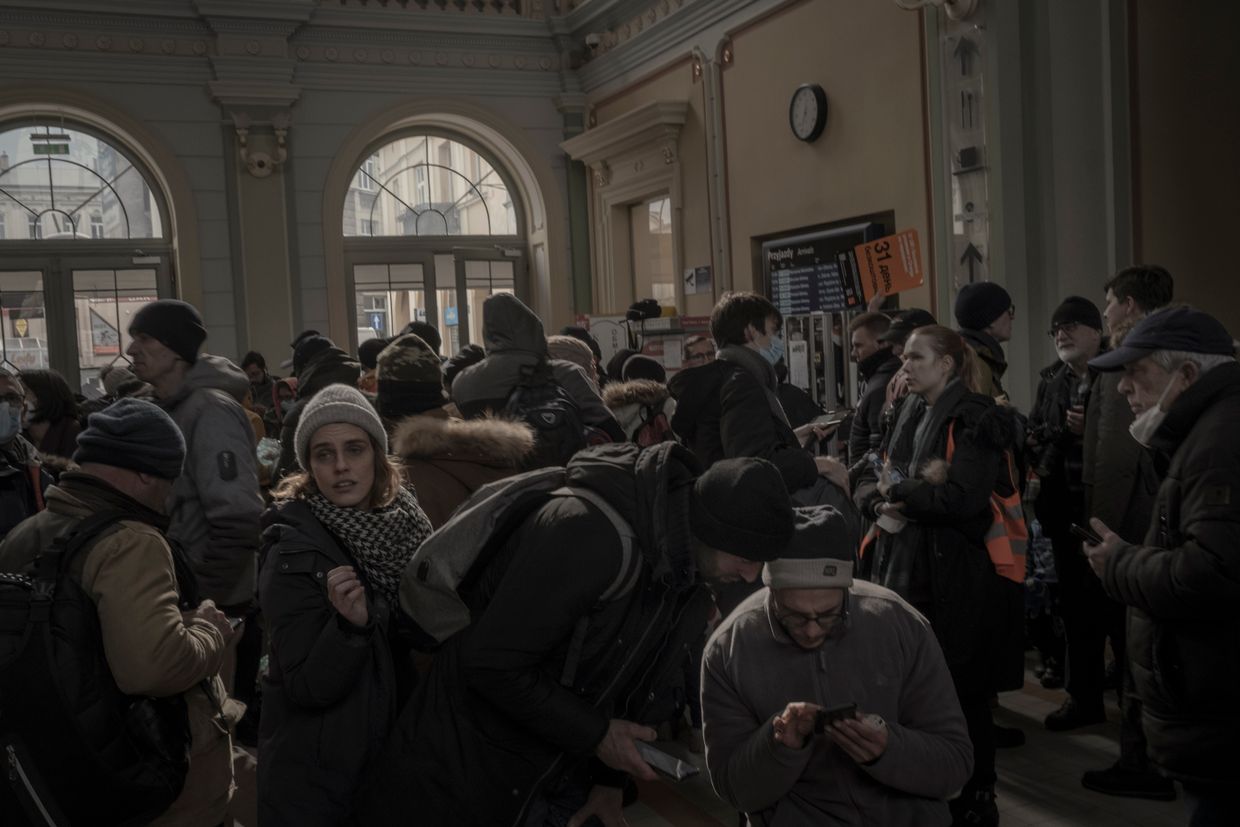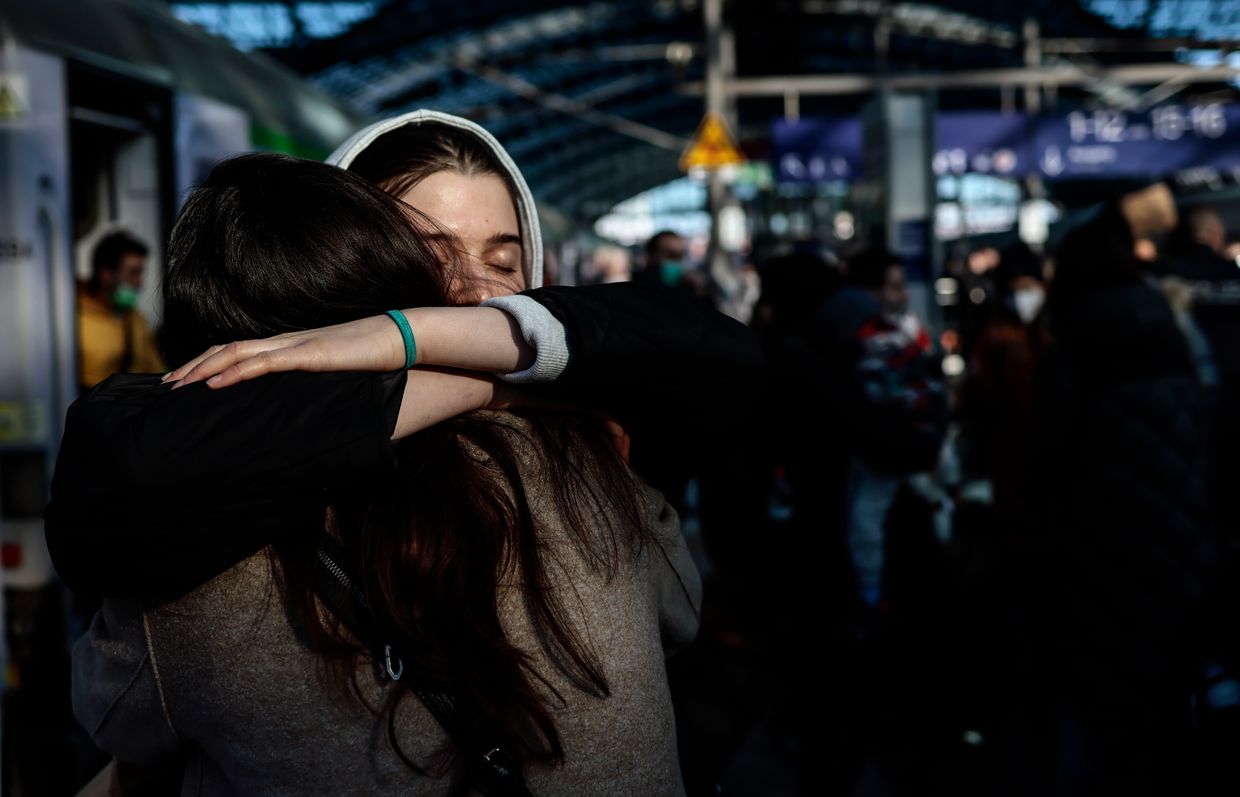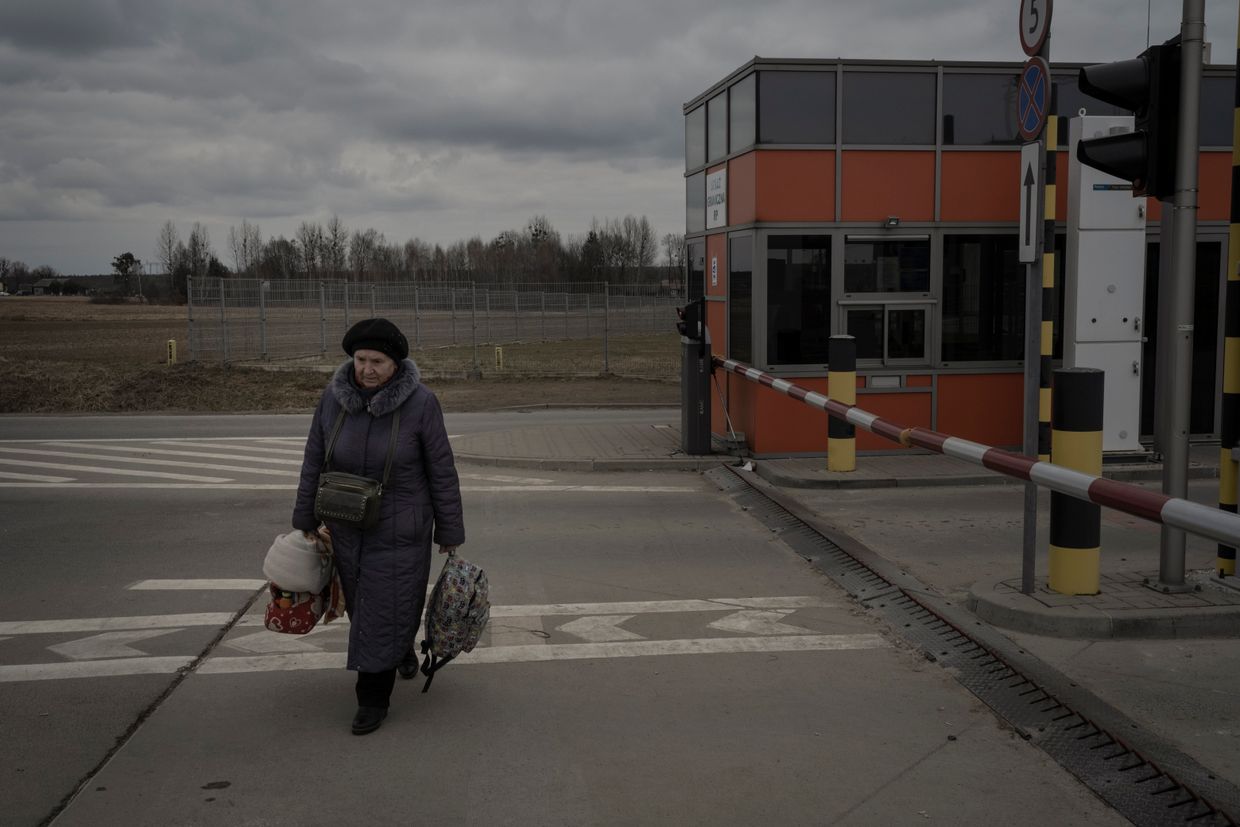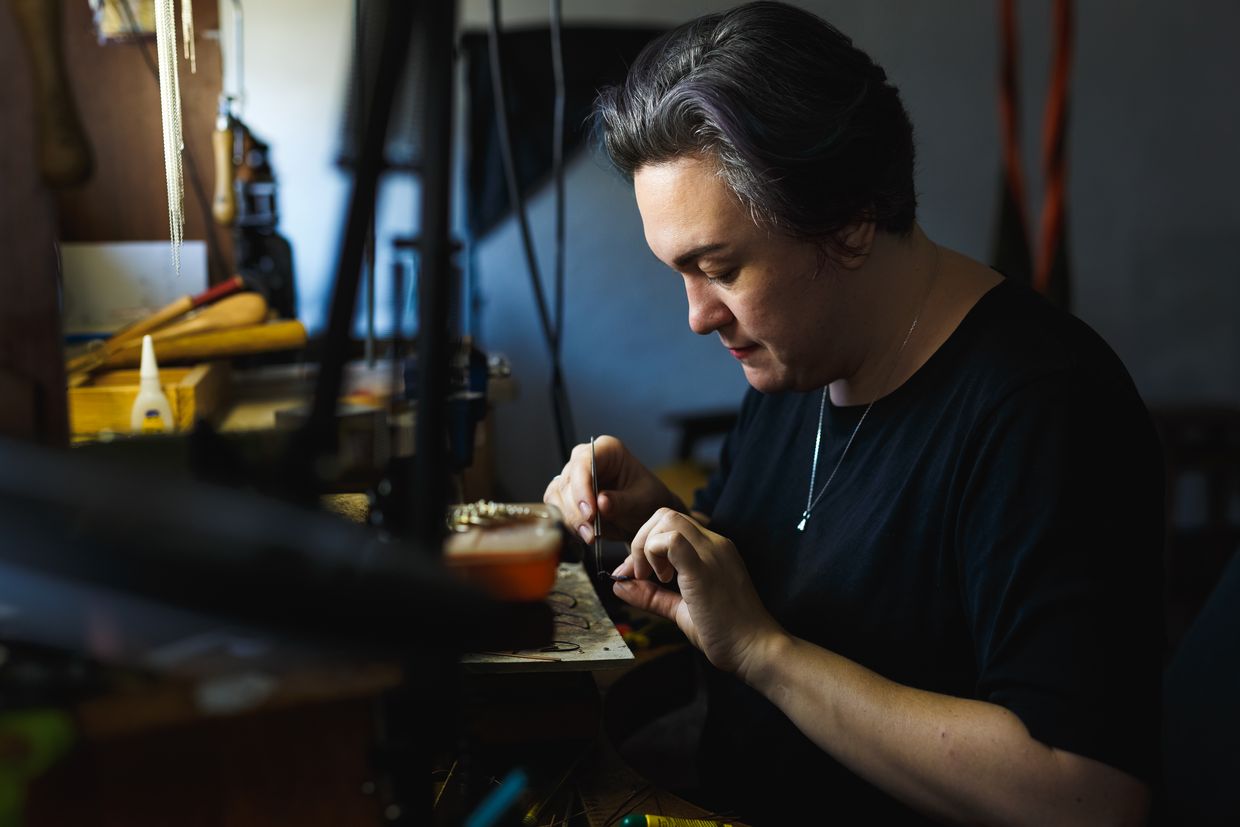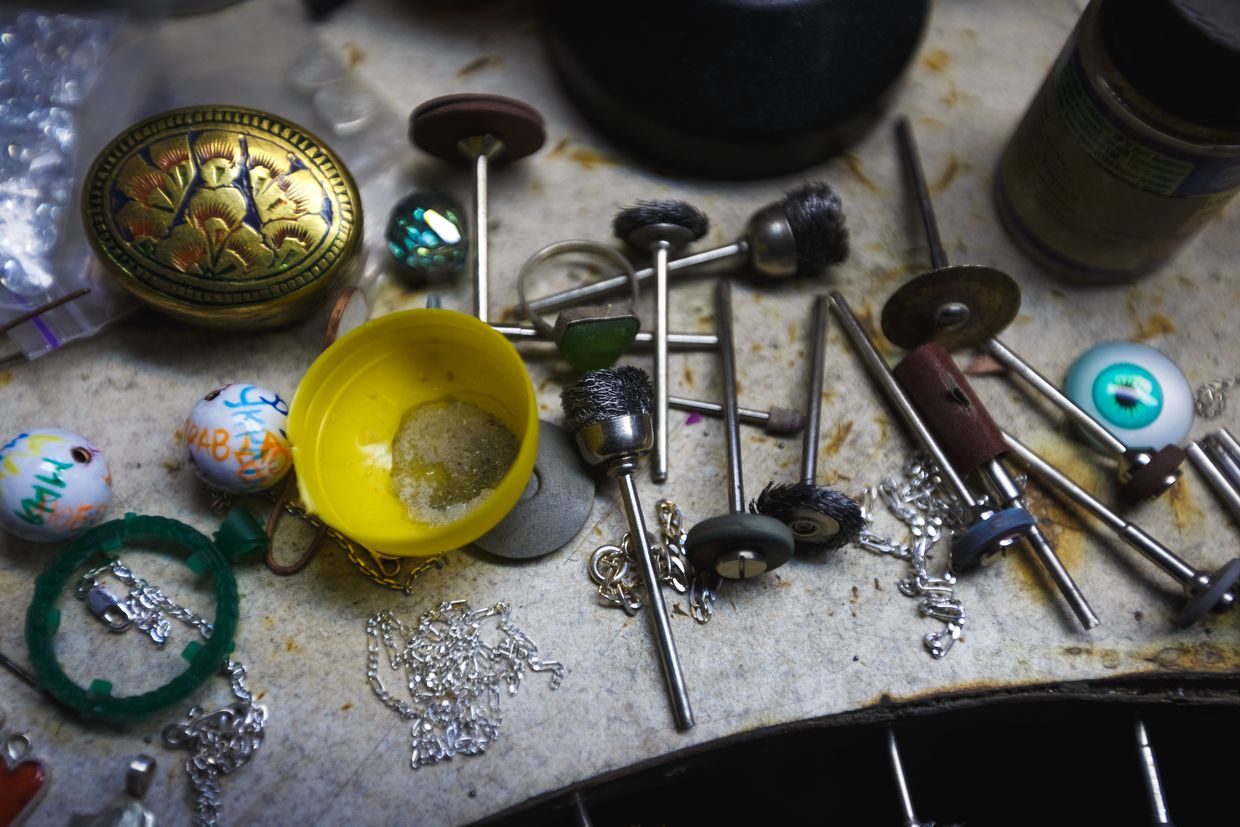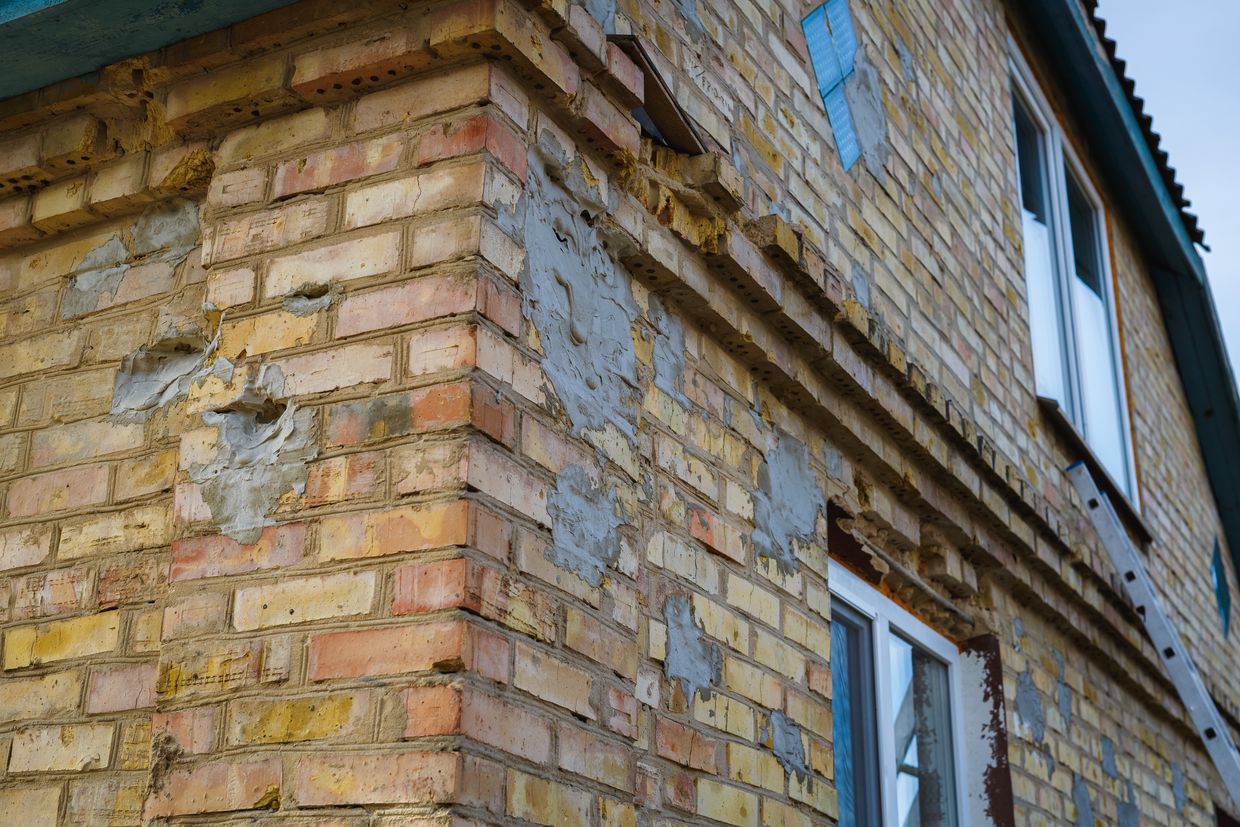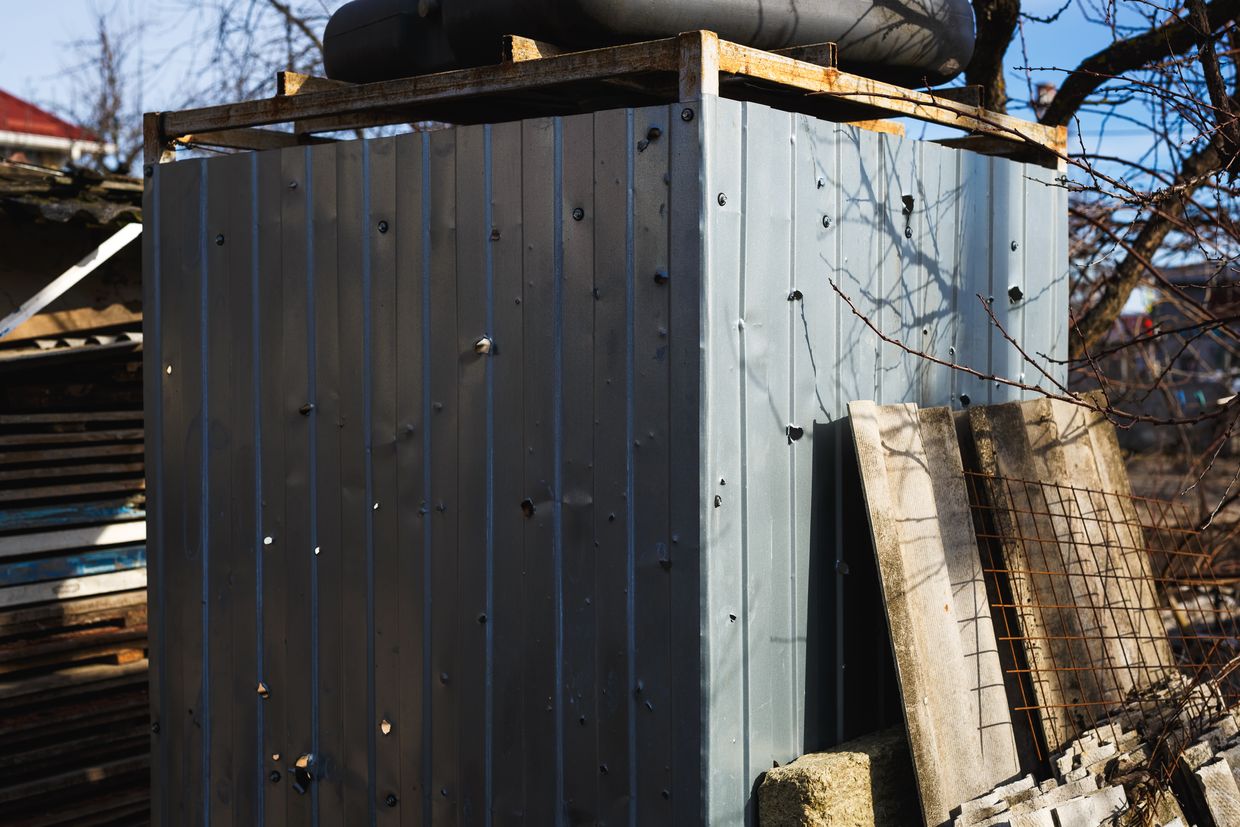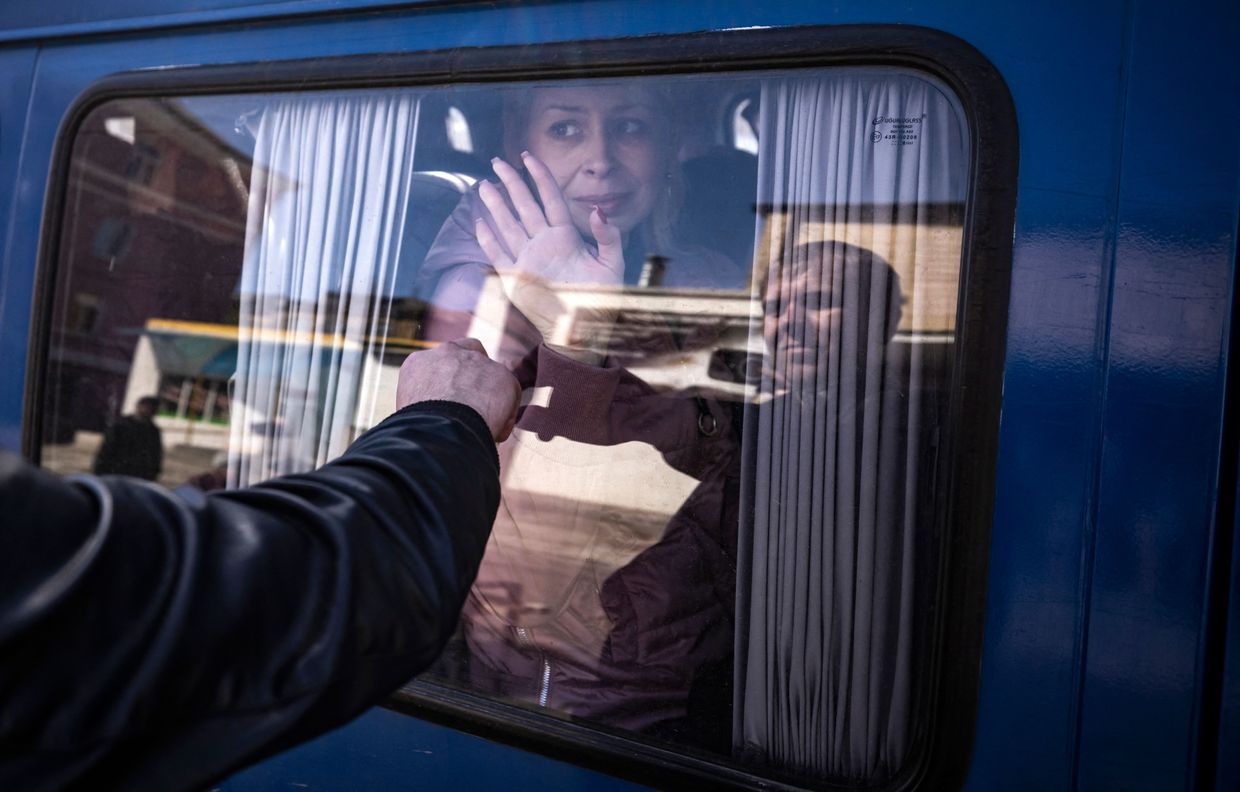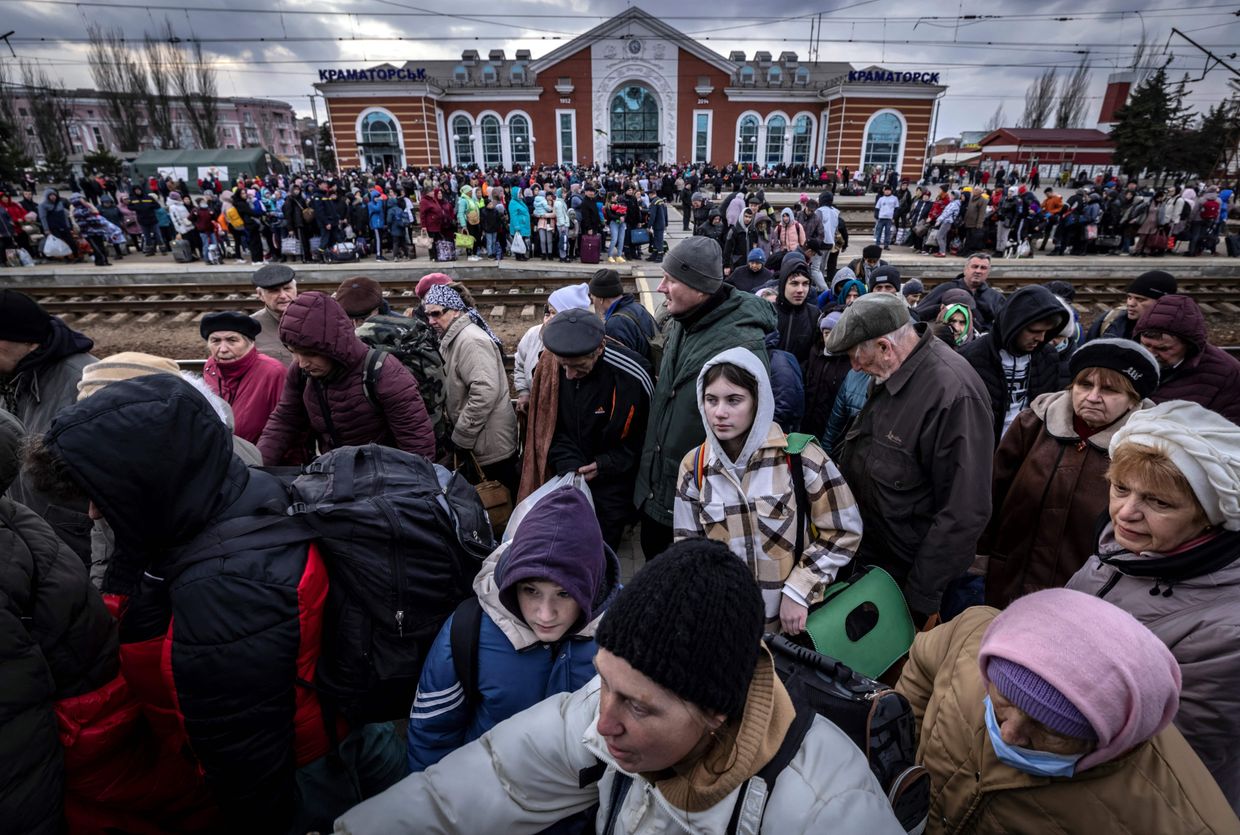Editor’s Note: This story was sponsored by the International Rescue Committee (IRC), a global humanitarian non-profit organization. The story is written according to the Kyiv Independent’s ethical standards and language guidelines.
Everyone in the 40-million nation of Ukraine has had their lives disrupted by Russia’s 2022 invasion, with millions fleeing the country or moving to safer areas, and the whole population suffering almost daily air raids, destruction of lives and property, and anxiety about the future.
But some have now endured a decade of hostilities and trauma inflicted by the Kremlin’s war – having fled from parts of Ukraine occupied or affected during the initial invasion in 2014, and rebuilding their lives for the past eight years, they have been forced to move again as the fighting spread to other areas.
During the first eight years of the war from 2014 to 2022, over 3,000 people were killed, with more than 850,000 people displaced from their homes and nearly three million requiring humanitarian assistance, according to the United Nations.
After 2022, the invasion escalated into an all-out war, causing the largest displacement crisis in Europe since World War II. Since then, 3.7 million people have been displaced within Ukraine, another six million refugees and asylum-seekers have fled to Europe, and over 14 million people have been in need of humanitarian assistance, according to the UN.
In a recent survey by the International Rescue Committee (IRC), a humanitarian organization that operates in Ukraine, 87% of Ukrainian respondents said they had to leave their home at least once since 2014, with 20% experiencing displacement multiple times.
As Russia’s war entered its 11th year in February, and with no end for the conflict in sight, Ukrainians from across the country continue to be forced to evacuate from affected areas, while others lose homes and relatives daily.
The Kyiv Independent spoke with some of the Ukrainians who have had their lives turned upside down by 10 years of Russian aggression against their homeland.
Running for their lives
In the early days of the full-scale invasion, the family of Oleksandr Tytov and Kateryna Tytova, with two small children, had to run across a stretch of road in the suburbs of Kyiv, past the bodies of another family that had gone ahead of them.
Russian forces were raining fire on the street. Ukrainian soldiers had told them to crouch down and run without stopping. Otherwise, they could have met the same fate as the family ahead of them.
It was the second time Russian forces had invaded their home. Eight years earlier, in 2014, jeweler Kateryna, lived in Donetsk along with soccer referee Oleksandr, and their first child Mark, when Russia invaded their hometown.
Kateryna says her previous life started to end when pro-Russian forces then announced the holding of sham referendums in Donetsk and Luhansk oblasts aimed at carving the two easternmost regions of Ukraine.
“That was the point of no return,” Kateryna told the Kyiv Independent. “We left, so as not to regret missing the one chance to leave.” They packed their lives in three boxes and left Donetsk.
The family built a life first in the Kyiv suburb of Bucha, where their second child, Tasia, was born. Five years later, the family bought a house in nearby Hostomel, where Kateryna could finally have her own separate jewelry workshop, rather than working in their living room.
Like many Ukrainians, they couldn’t believe it when, two years ago, Russian missiles rained down on cities all across Ukraine. Oleksandr said the next week after the start of the full-scale invasion felt like being inside a movie.
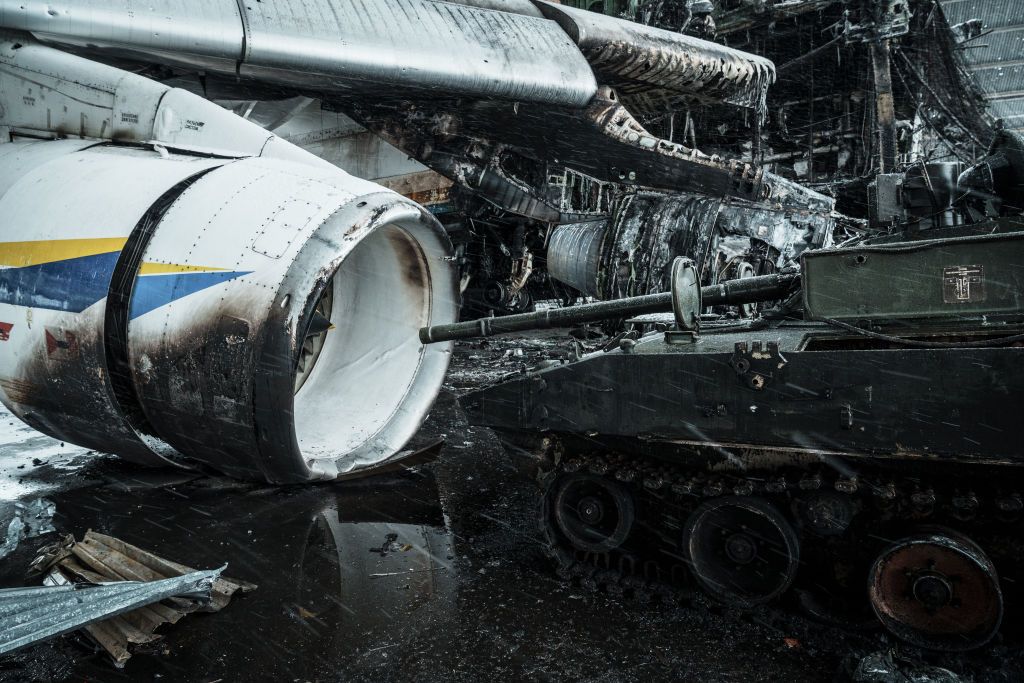
With electricity and communication interruptions, the family knew little about what was happening beyond the fence of their home. But the sounds of war were coming closer and closer.
Their basement, where the family used to store pickled vegetables, turned into a bomb shelter. A small square cellar with a sandy floor became their living room and bedroom for a few days.
Kateryna and Oleksandr emptied the basement of everything except the narrow shelves where jars with vegetables once stood. Approximately 50 centimeters wide, these shelves served as beds for the children while the adults slept in half-sitting positions on bean bags placed on the sandy floor.
"We were lying cramped, in darkness, with insufficient air. It felt as though we were in a coffin and were going to die. It put a lot of pressure (mentally on us) at some point,” Kateryna said.
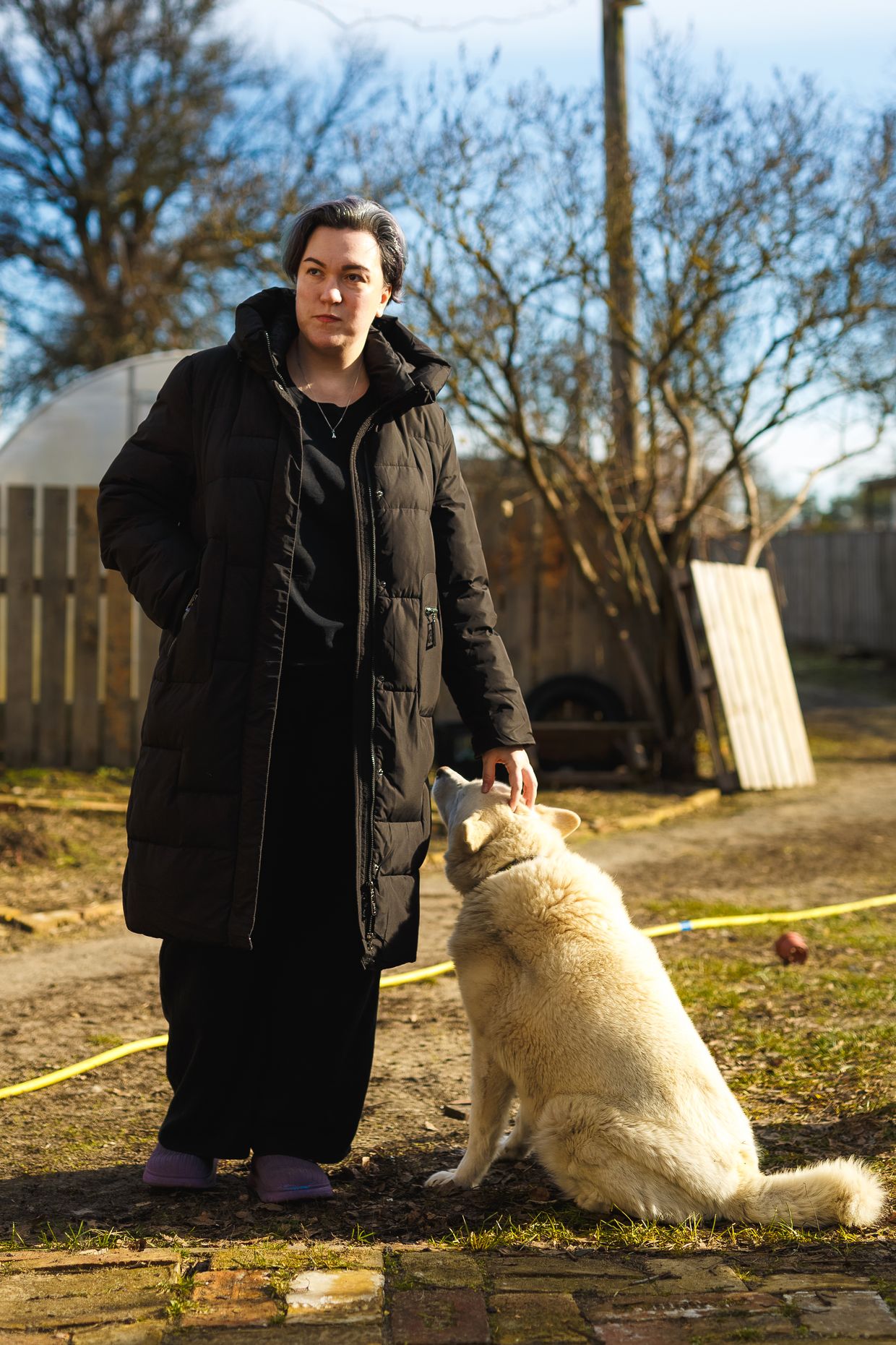
Kateryna Tytova (Yurii Stefanyak/The Kyiv Independent)
A fierce battle of Hostomel, which started immediately after the full-scale invasion, reached the family’s street on March 3, 2022. As they were sheltering in the basement, the family knew fighting was happening right above them.
Moments later, their home was hit, with one room in the house and their jewelry workshop outside getting destroyed.
The IRC estimates that approximately 1.5 million homes have been destroyed by Russia’s war in Ukraine since 2022, with the direct damages to buildings and infrastructure reaching an estimated $135 billion.
After their home was hit, Kateryna, Oleksandr, and their children packed up again and left for a place they thought would be safer – Bucha.

Walking past destroyed townhouses and dead bodies, they heard the ominous sound of a burning gas pipeline. Kateryna said it felt like “the sound of hell.”
“It was like in movies again – a postapocalyptic one this time,” Oleksandr told the Kyiv Independent.
Reuniting with their friends in Bucha, they found out that Russian forces were killing civilians everywhere around them.
The civilian killings in Bucha have become a symbol of the brutality of Russia’s war. The small leafy town became the site of atrocities by Russian troops during their occupation and until their withdrawal from northern Ukraine in late March.
At the time, the Tytovs didn't know the full extent of the horrors unfolding around them. Rumors of cars being shot at on the highway prompted them to attempt to walk to neighboring Irpin, the last suburb before Kyiv.
The children were exhausted from walking a long distance in cold weather and begged for a rest. They covered the last mile on a small bus packed with frightened people.
The bridge connecting Irpin and Kyiv had been destroyed, so they followed instructions of the Ukrainian military and ran for their lives to the other side of the river, under Russian fire.
It was there that they ran past the bodies of a family of three, killed while running meters ahead of them.
A picture of Kateryna running with her daughter on the safer side of the river was published in newspapers across the globe. The family made it to Kyiv, but safety there was only relative.
“In Kyiv, grocery stores were open, and the internet was working, but just seven minutes away was hell with dying people,” Kateryna said.
After Russian forces withdrew from Kyiv suburbs and the rest of northern Ukraine in the spring of 2022, the Tytovs family returned to Hostomel to once again rebuild their life.
Survival mode
For the past decade Yevhen Lapeniuk and his family have been in constant survival mode.
They had to flee from Russian occupation twice, moving from city to city and living as a family of first three, and then four, on one salary.
The nightmare started in late May 2014, when Russian proxies attempted to seize Donetsk airport, a Ukrainian stronghold at the time. A coal miner working near the airport, Lapeniuk was soon seeing Ukrainian jets and helicopters engaged in combat close-by.
He continued working at the coal mine despite daily fire for about a month, until it became too dangerous. Over this time, he was separated from his family that moved to Druzhkivka, a city about 80 kilometers north which, after a short occupation, had been liberated in early July 2014.
Russia’s war separated millions of Ukrainian families, with 74% of IRC survey respondents reporting being separated from a close family member as of 2024.

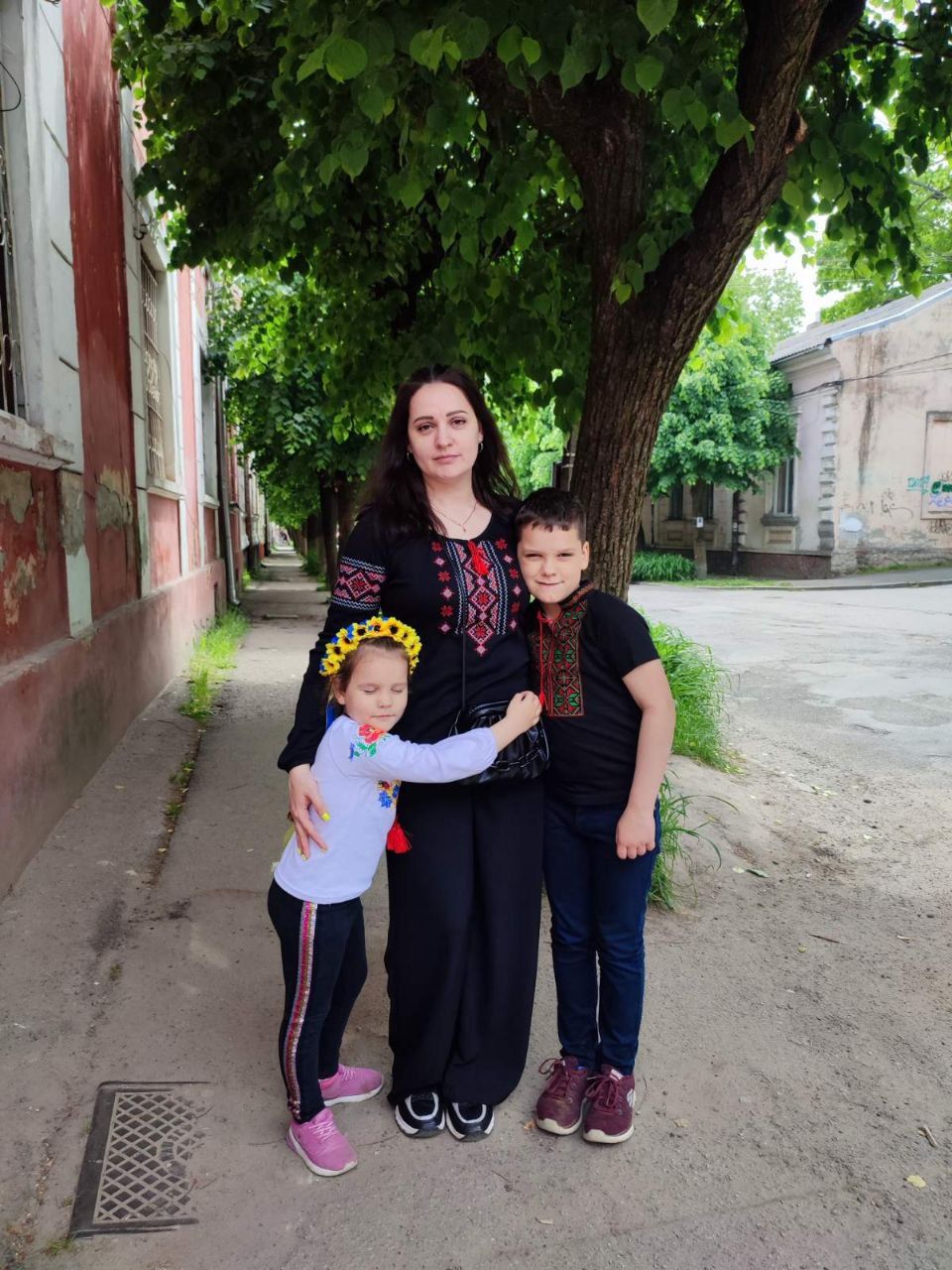
Lapeniuk eventually joined his family and in-laws in Druzhkivka, where he found work as a waiter, before securing a trading job in the nearby district capital of Kramatorsk.
Starting afresh, the family settled into a rented apartment in Kramatorsk and welcomed another child. However, financial struggles persisted, with one salary barely covering their basic needs.
Poverty rates have increased significantly in Ukraine during war, according to the IRC. Over 36% of respondents surveyed by the organization in 2024 reported frequently not being able to afford basic necessities due to financial hardships.
The family struggled for years until a few months before the full-scale invasion, when their financial situation finally improved. By then, they had adapted to the new circumstances, forged new connections, and were even considering buying an apartment.
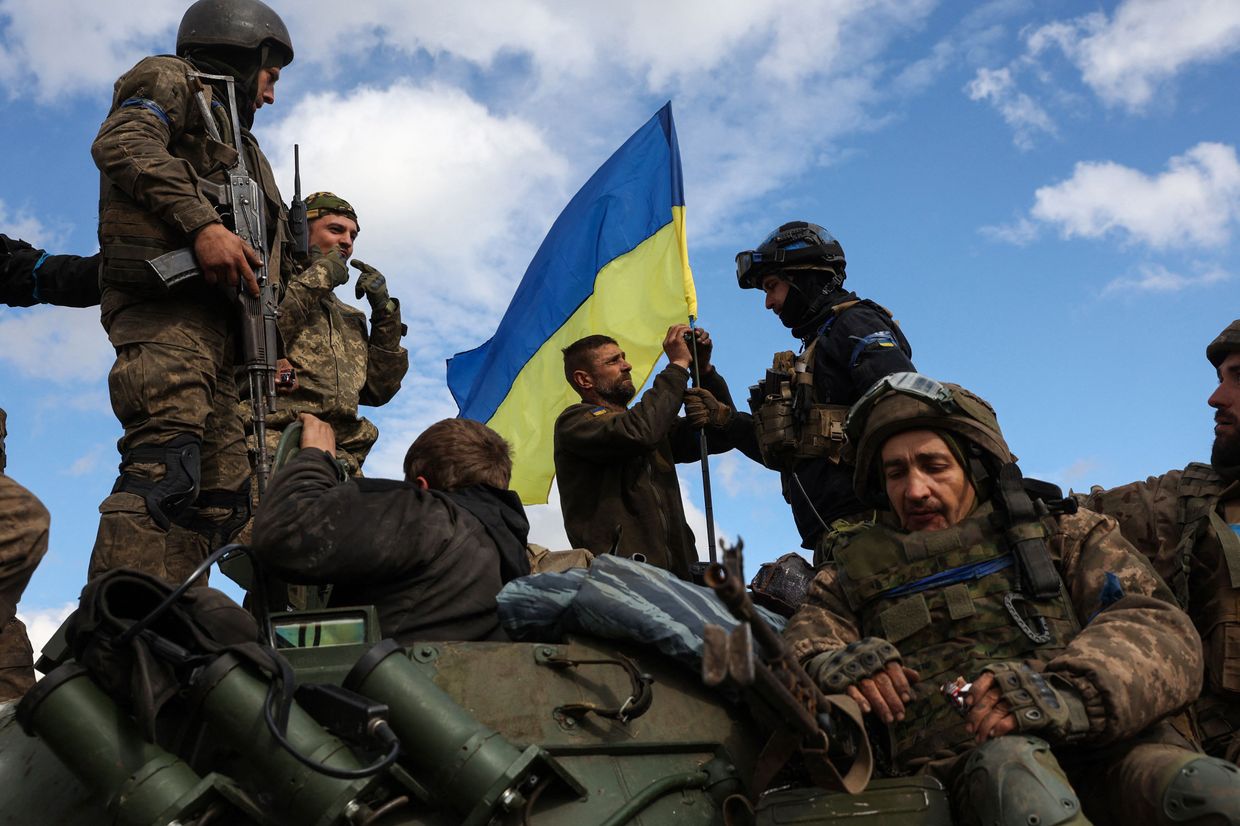
Then, in February 2022, Russian President Vladimir Putin signed a decree recognizing the "independence" of the occupied parts of Donetsk and Luhansk oblasts.
Lapeniuk didn't initially give much thought to the decision and how it could affect the situation in the region. But only two days later, the decree was used as one of the pretexts for Russia’s full-scale invasion of Ukraine. That night, Lapeniuk’s family awoke to the sounds of explosions in Kramatorsk.
Due to his experience as a blaster in the mine, and being accustomed to using dynamite, the explosions didn’t scare Lapeniuk. But his wife grew increasingly anxious with every air raid alert.
The family, including Lapeniuk’s in-laws, once again made the decision to evacuate.
Packing only essentials into their red hatchback, the six of them journeyed west, through kilometer-long traffic jams on the main roads. After spending a night on the road, they reached Khmelnytskyi Oblast, and eventually found a house to stay in a village in neighboring Chernivtsi Oblast.
The quest to secure enough money for the family's survival endured again, eventually forcing the family to move to the bigger city to have more job opportunities.
A survey by the IRC revealed that 70% of respondents either lost their jobs or had to alter their career paths due to Russia’s war. Among them, 45% had to accept lower-paying jobs or positions below their qualifications.
The family of six has lived in a cramped, two-room apartment in Chernivtsi city for almost two years now. Lapeniuk and his wife found jobs, however, their financial struggles persist.
"Russia has ruined the best years of my life," Lapeniuk said.
